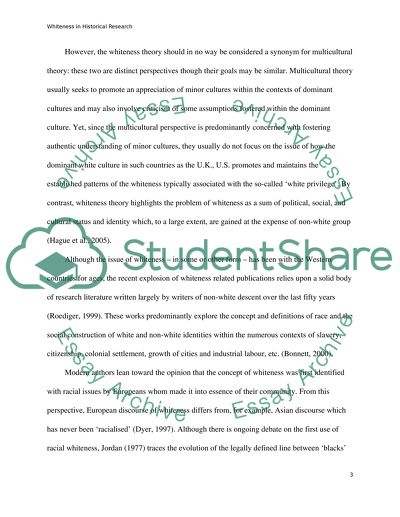Cite this document
(“Whiteness in Historical Research Essay Example | Topics and Well Written Essays - 1500 words”, n.d.)
Whiteness in Historical Research Essay Example | Topics and Well Written Essays - 1500 words. Retrieved from https://studentshare.org/science/1507325-whiteness-research
Whiteness in Historical Research Essay Example | Topics and Well Written Essays - 1500 words. Retrieved from https://studentshare.org/science/1507325-whiteness-research
(Whiteness in Historical Research Essay Example | Topics and Well Written Essays - 1500 Words)
Whiteness in Historical Research Essay Example | Topics and Well Written Essays - 1500 Words. https://studentshare.org/science/1507325-whiteness-research.
Whiteness in Historical Research Essay Example | Topics and Well Written Essays - 1500 Words. https://studentshare.org/science/1507325-whiteness-research.
“Whiteness in Historical Research Essay Example | Topics and Well Written Essays - 1500 Words”, n.d. https://studentshare.org/science/1507325-whiteness-research.


